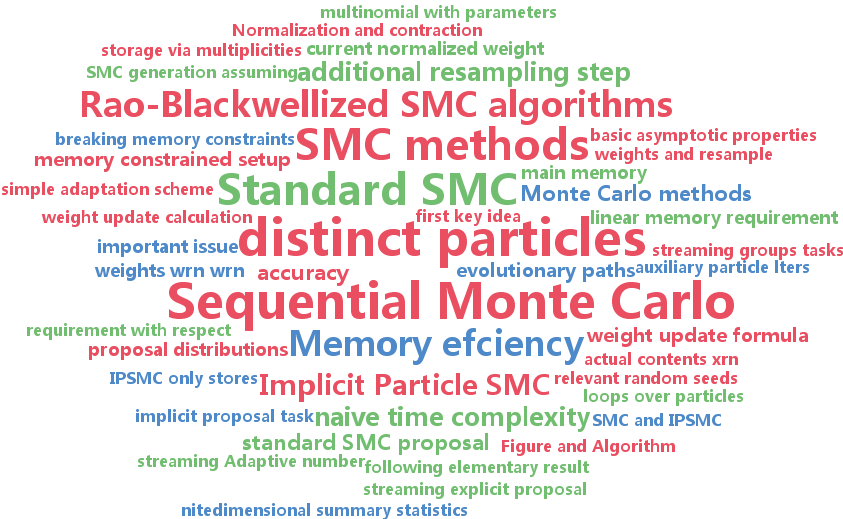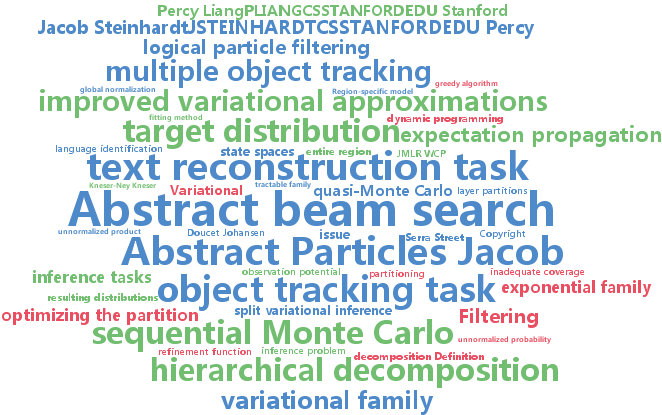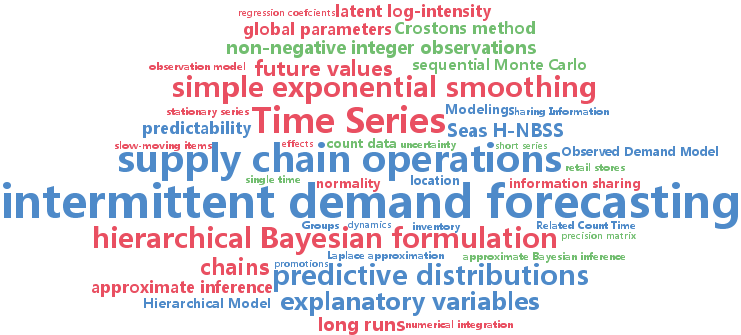sequential monte carlo
-
Seong-Hwan Jun and Alexandre Bouchard-Côté
Memory (and Time) Efficient Sequential Monte Carlo (pdf)
Memory efficiency is an important issue in Sequential Monte Carlo (SMC) algorithms, arising for example in inference of high-dimensional latent variables via Rao-Blackwellized SMC algorithms, where the size of individual particles combined with the required number of particles can stress the main memory. Standard SMC methods have a memory requirement that scales linearly in the number of particles present at all stage of the algorithm. Our contribution is a simple scheme that makes the memory cost of SMC methods depends on the number of distinct particles that survive resampling. We show that this difference has a large empirical impact on the quality of the approximation in realistic scenarios, and also---since memory access is generally slow---on the running time. The method is based on a two pass generation of the particles, which are represented implicitly in the first pass. We parameterize the accuracy of our algorithm with a memory budget rather than with a fixed number of particles. Our algorithm adaptively selects an optimal number of particle to exploit this fixed memory budget. We show that this adaptation does not interfere with the usual consistency guarantees that come with SMC algorithms.
-
Jacob Steinhardt and Percy Liang
Filtering with Abstract Particles (pdf)
Using particles, beam search and sequential Monte Carlo can approximate distributions in an extremely flexible manner. However, they can suffer from sparsity and inadequate coverage on large state spaces. We present a new filtering method that addresses this issue by using “abstract particles” that each represent an entire region of the state space. These abstract particles are combined into a hierarchical decomposition, yielding a representation that is both compact and flexible. Empirically, our method outperforms beam search and sequential Monte Carlo on both a text reconstruction task and a multiple object tracking task.
-
Nicolas Chapados
Effective Bayesian Modeling of Groups of Related Count Time Series (pdf)
Time series of counts arise in a variety of forecasting applications, for which traditional models are generally inappropriate. This paper introduces a hierarchical Bayesian formulation applicable to count time series that can easily account for explanatory variables and share statistical strength across groups of related time series. We derive an efficient approximate inference technique, and illustrate its performance on a number of datasets from supply chain planning.
-
Brooks Paige and Frank Wood
A Compilation Target for Probabilistic Programming Languages (pdf)
Forward inference techniques such as sequential Monte Carlo and particle Markov chain Monte Carlo for probabilistic programming can be implemented in any programming language by creative use of standardized operating system functionality including processes, forking, mutexes, and shared memory. Exploiting this we have defined, developed, and tested a probabilistic programming language intermediate representation language we call probabilistic C, which itself can be compiled to machine code by standard compilers and linked to operating system libraries yielding an efficient, scalable, portable probabilistic programming compilation target. This opens up a new hardware and systems research path for optimizing probabilistic programming systems.



